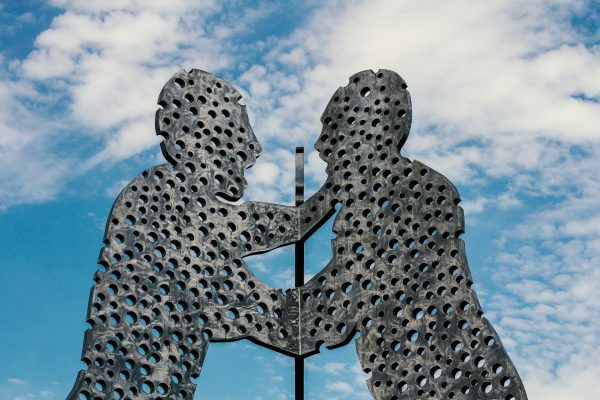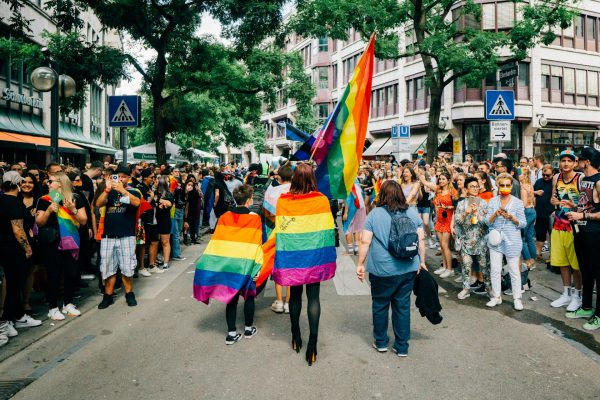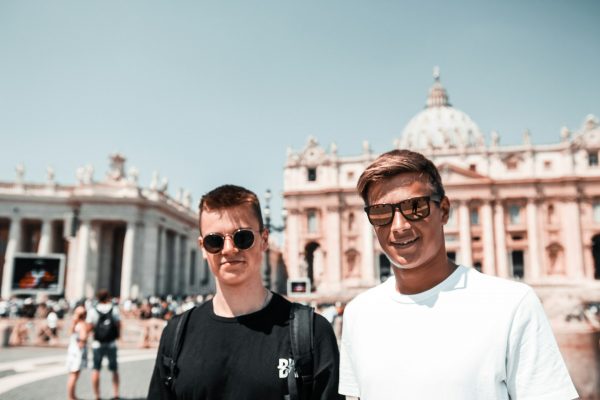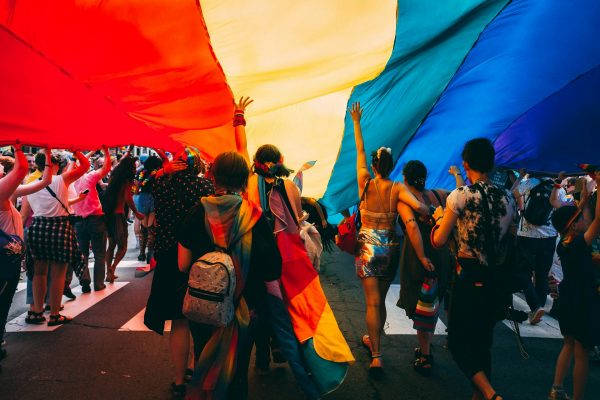New Jersey’s output of queer musicians is so impressive that, if it weren’t routinely conflated with New York City’s output, you’d probably have noticed it. Many of the queer music world’s most enduring stars got their start in New Jersey, which isn’t particularly surprising when you realize that a lot of what is commonly called the New York City ball scene actually took place in North Jersey. This ball culture has been a constant and changing influence on the East Coast music scene, despite the way our picture of it was frozen in time after Paris is Burning (1991) was released, and has, in turn, influenced the development of hip hop and rap in the North Jersey and New York City areas.
MikeQ is a Newark-based DJ heavily involved in the ballroom scene who is known throughout queer music circles as one of the community’s foremost music producers and busiest DJs, being requested to work shows up and down the East Coast as well internationally. In addition to creating his own music and spinning at events across the globe, MikeQ is also the founder of Qween Beat, an 18-member music collective and label that features some of the most talented ballroom artists in the nation. MikeQ was recently featured in the documentary Kiki. The film follows the evolution of the New York City ballroom scene of the 80s and 90s into the current kiki scene, which finds ball culture moving into LGBTQ youth centers across the East Coast. Kiki premiered at the 2016 Sundance Film Festival and reflected MikeQ’s desire to create spaces for LGBTQIA+ youth of color. MikeQ creates some of the best vogue, house, and ballroom tracks around, and it would seriously behoove you to check him out.
The New Jersey hip hop scene has taken some serious influences from ball culture and the work of MikeQ, and work by LGBTQIA+ musicians in the state certainly reflects this. Cakes da Killa, arguably the most popular queer musician in New Jersey today, certainly takes a few cues from the work of artists such as MikeQ. Cakes’ performances are often theatrical, incorporating both voguing elements as well as the high-fashion, gender-bending style that ballroom culture has become known for. But Cakes has not only been praised for his performances. The lyrics he spits and the beats he drops can quite truly, to quote the artist himself, “make a homophobe a hypocrite.” Yet while discussing homophobia in his music, Cakes does not want to pigeonhole himself as a gay rapper, instead claiming the identity of a rapper who happens to be gay. There’s certainly a lot of power in this statement; it refuses to let the music industry define Cakes through only one aspect of his identity and also rejects the consumerist approach of marketing Cakes’ queer identity as “fresh” to the world of hip hop. Issues like this, as well as issues of race and class, are explored in Cakes’ most recent release, Hunger Pangs, which is available on his website.
While musicians like Cakes attempt to use music to uplift minority communities, groups such as the Northern New Jersey-based BTTN (read: Benatton) attempt to use hip hop to bring different communities together. Made up of Rich “Parlay” Copier and Luis “Jay Suarez” Suarez, this duo brings together individuals from vastly different cultures to create a multicultural musical force that attempts to bring different communities together. The duo also uses their art to blur the lines between different industries, creating music, fashion, and visual art of high quality, without regards to the quantity of media that is expected of a group in a consumerist atmosphere. Their first single, Elevated, is available now on BTTN’s SoundCloud.
Stay in the loop about new releases from MikeQ at his SoundCloud: https://soundcloud.com/djmikeq
Check out Cakes da Killa and stay on top of all that he is up to at his website: http://cakesdakilla.com/
Stay on top of BTTN’s new releases at their SoundCloud: https://soundcloud.com/benatton






